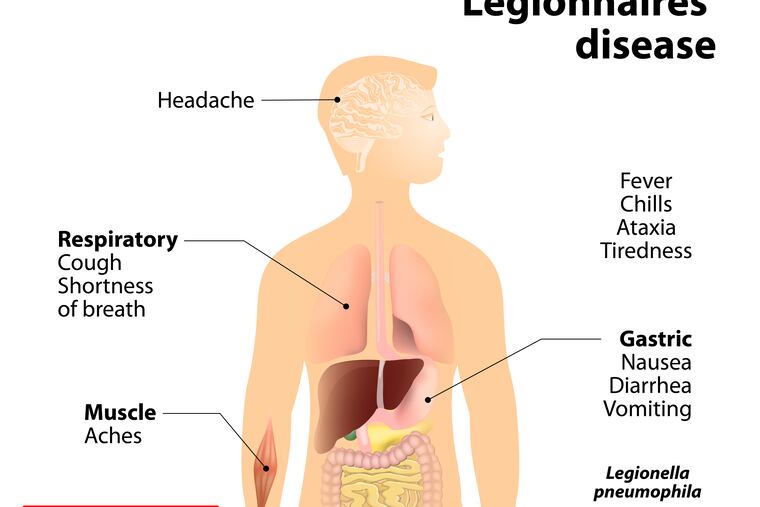What is Legionnaires' disease?
Legionnaires’ disease is a buzzword and it may be an illness you know relatively nothing about.

Recent outbreaks in the U.S. have turned Legionnaires' disease into a buzzword in the health community. If this is an illness you're hearing about for the first time, here's what you need to know:
For starters, the disease actually developed right here in Philadelphia. An outbreak during the American Legion Convention in 1976, gave way to its naming.
Legionnaires' is a form of pneumonia caused by legionella bacteria. It's classified as 'very rare,' which less than 20,000 U.S. cases per year. In conjunction with the lung infection, you may also develop Pontiac fever, which is caused by legionella and resembles a minor flu.
Typically, the ailment primarily spreads through inhaled water droplets containing the bacteria, although it can be contracted through contaminated potting soil. Legionella generally thrive in warmer temperatures, (77 to 113 degrees) which is why outbreaks often happen indoors, mainly in larger buildings, like the latest outbreak at West Chester University. It can be transmitted via showers, hot tubs, air conditioners and other ventilation systems.
Symptoms usually develop rather quickly after contact with the bacteria – within two to 10 days. High fever, headache, chills and muscle pain may give way to chest pain, shortness of breath, vomiting, nausea, severe cough and diarrhea by the second or third day after initial symptoms begin to show.
However, not everyone who comes in contact with the bacteria will get sick. You are more susceptible to develop the infection if you're 50 years of age or older, smoke, have a weakened immune system or have a history of chronic lung problems.
Pontiac fever goes away on its own but, if left untreated, Legionnaires' disease can become fatal.
Even though antibiotics will cure the infection, most cases still require hospitalization for treatment.
If you think you may have come in contact with legionella bacteria, see your doctor immediately. A timely diagnosis and management is critical for high-risk individuals.